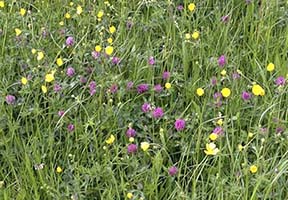 On 7th February, more than 120 people representing national authorities, EU institutions, the agricultural and forestry sectors, academics as well as NGOs and think tanks gathered in Brussels to contribute to an evolving policy debate in Europe through discussions around the key lessons and messages of the PEGASUS project.
On 7th February, more than 120 people representing national authorities, EU institutions, the agricultural and forestry sectors, academics as well as NGOs and think tanks gathered in Brussels to contribute to an evolving policy debate in Europe through discussions around the key lessons and messages of the PEGASUS project.
The final conference of PEGASUS (Public Ecosystem Goods and Services from land management: Unlocking the Synergies) took the participants through a summary of the results of over 3 years of research on concrete ways to enhance the provision of environmental and social benefits by agriculture and forestry, and what this means for policy and practice in Europe.
The PEGASUS policy recommendations in summary are:
- There is a need for a step change in policy to deliver more environmental and social benefits with a new approach which should bring people to the centre stage.
- Policies need to promote cooperative ways of working (i.e. through more multi-actor groups, or ‘collective’ action) to increase engagement and commitment of farmers and foresters.
- Institutions need to build trust and embed dialogue with stakeholders at all stages of the policy cycle.
- Allow for a more flexible and joined up use of the policy mix, better adapted to local needs.
- Mainstream the combined use of facilitation and capacity building with other measures so that it becomes the norm rather than the exception.
Janet Dwyer, Chris Short, Peter Gaskell, Paul Courtney, Katarina Kubinakova and Nick Lewis were the CCRI researchers involved in PEGASUS and between them conducted case-studies in the following areas:
1.WILD river basin management initiative
2. Hope Farm – intensive, sustainable arable farming in the east of England
3. North Pennines multi-stakeholder partnership for sustainable uplands
4. Care farms




